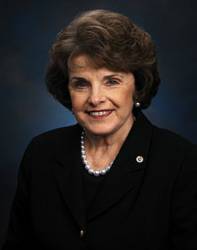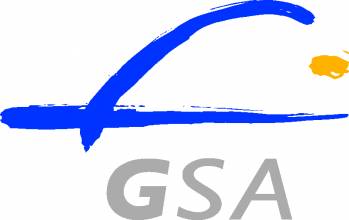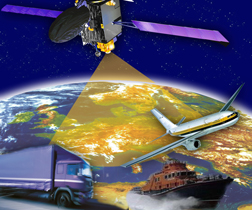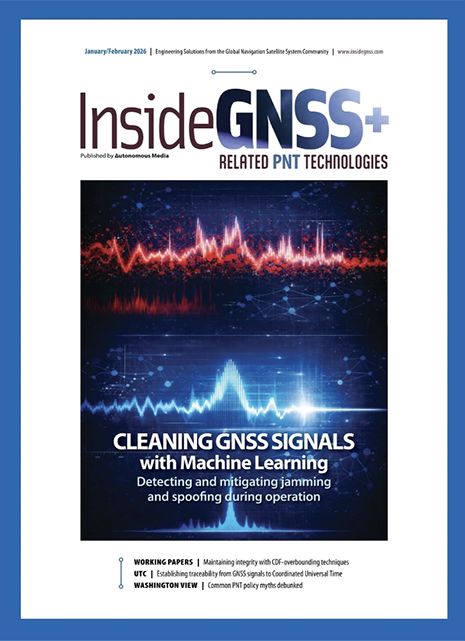The prospects for the rapid integration of unmanned aerial systems (UAS) into the day-to-day work of farmers, pipeline operators and firemen seem to be dimming amidst a hail of privacy legislation.
Virginia is poised to enact a two-year moratorium on the use of UASs, roughly 30 other states are weighing legislation and nearly half a dozen federal bills limiting the use of UASs have already been introduced in Congress just two months into the new session.
The prospects for the rapid integration of unmanned aerial systems (UAS) into the day-to-day work of farmers, pipeline operators and firemen seem to be dimming amidst a hail of privacy legislation.
Virginia is poised to enact a two-year moratorium on the use of UASs, roughly 30 other states are weighing legislation and nearly half a dozen federal bills limiting the use of UASs have already been introduced in Congress just two months into the new session.
The storm was triggered last year, experts told Inside GNSS, when Congress moved to help the UAS industry by mandating that the Federal Aviation Administration (FAA) integrate their aircraft into the national airspace by 2015. The language in the FAA Modernization and Reform Act of 2012 has focused attention on UASs at a point when the public still conflates the unmanned craft used by the military to locate and kill terrorists overseas with their smaller, peace-time cousins
Although the White House has declared clearly that UASs will not be used to kill U.S. citizens on U.S. soil, the opportunity to score political points by continuously raising the issue has proven too tempting for some members Congress. Companion bills now have been introduced in the House (HR 1242) and Senate (S. 505) to expressly prohibit such killing.
The issue of armed drones has little to do, however, with the civil UAS community except that the ongoing debate raises anxiety levels, particularly with regard to privacy — the focus of many of the state bills and the most recent piece of federal legislation.
The Drone Aircraft Privacy and Transparency Act of 2013, HR 1262, would mandate that the FAA incorporate privacy principals into its new UAS rules. Under the bill the Department of Transportation could not license any UAS operation unless the license includes statements that specify where and for what period the UAS will be operated, who will be operating it, and how to contact someone regarding the data collected.
The license would also need to detail what data will be collected, how it will be used, if it will be sold, how it would be protected, and when it will destroyed. Law enforcement operators would have to obtain a warrant and any extraneous data collection would need to be minimized.
Should the operator not follow the provisions made in its statements, the bill, which was proposed by Rep Ed Markey, D- Massachusetts, allows the FAA to revoke the operator’s license. More importantly, the bill would also give the Federal Trade Commission (FTC) the power to enforce the provisions including the creation of new regulations. The legislation would also grant states and individuals the power to sue for violations.
The Privacy Issue
The idea of using the Department of Transportation (DoT), specifically the FAA, as a starting point for privacy protections has come up in other forums. Citing FAA’s overall expertise Ryan Calo, an assistant professor law at the University of Washington Law School in Seattle, told the Senate Judiciary Committee on March 20 that tasking the FAA with protecting privacy would be a good “stop gap” measure.
The Association for Unmanned Vehicle Systems International (AUVSI), a nonprofit association working in support of the UAS industry, has expressed concern, however, at the prospects of additional rules.
While it “strongly supports protecting individuals’ privacy,” regulatory efforts should not be focused on a specific technology such as unmanned aircraft, the association suggested, but on the issue of data collection as a whole ‑ regardless of how it is done.
“There is already a robust legal framework in place, rooted in the Fourth Amendment to our Constitution and decades of case law, which has ably safeguarded personal privacy as technology has advanced,” an AUVSI spokesperson said in an emailed statement.
“This conversation should be focused on the extent to which the government can collect, use and store personal data,” the statement continues. “Instead of focusing on how the government collects information, AUVSI supports an open debate on the government’s right to collect, use, store, share, and delete personal data. AUVSI is opposed to any legislation that needlessly restricts the use of unmanned aircraft, and treats it differently than information gathered by a manned aircraft, or other electronic means.
“The industry is concerned by the potentially severe unintended consequences ill-conceived legislation could have on an industry poised to create more than 100,000 jobs in the ten years following the integration of UAS into the national airspace.”
In a particularly crisp exchange during the Senate hearing is any indication, however, AUVSI may be facing an uphill fight.
Michael Toscano, AUVSI’s president and chief operating officer, noted during his testimony before the committee that he does not use the term “drone.”
“The industry refers to a technology of unmanned aircraft systems or UASs because this is more than just a pilotless vehicle,” Toscano said. “A UAS also includes the technology on the ground with a human at the controls. I like to say there is nothing unmanned about unmanned systems. The term drone also carries with it a hostile connotation and does not reflect how UASs are actually being used domestically.”
Before Toscano could finish his statement he was cut off by committee chairman Sen. Patrick Leahy, D-Vermont. “I appreciate you telling us what we should call them, but why don’t you leave that decision up to us.”





